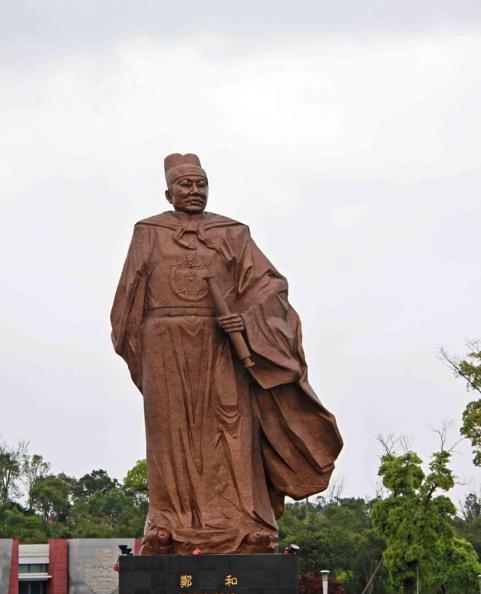
Zheng He
Zheng He, whose original surname was Ma, was a eunuch of the Ming Dynasty Zhu Di and a native of present-day Kunming, Yunnan. The Western Ocean is now west of Brunei and Malaysia, southeast Asian countries and the Indian Ocean coastal area.
During the Ming Dynasty's Zhu Yuanzhang period, he began to actively develop diplomatic relations with the feudal states and adopted a "non-encroachment" attitude toward neighboring countries. It is an attempt to build a system of world relations with China as the leader and a harmonious hierarchical order. After the Battle of Jingnan, Zhu Di inherited this tradition. Ming Chengzu Zhu Di sent people to the sea to contact the kingdom before Zheng He, and Zheng He's voyage to the West was the most successful foreign contact. Zheng He went to the West seven times from 1405 AD --- 1433 AD. Zheng He set out from Liujiagang, Jiangsu Province, and led a fleet of more than 20,000 people through the East China Sea and the South China Sea, through the Strait of Malacca, into the Indian Ocean coast, and as far as the Red Sea coast of Mecca and the east coast of Africa. Wherever Zheng He's fleet went, it was friendly with the local people, peaceful exchanges with the countries along the way, and exchanged views with each other, which was deeply welcomed and respected by the local people. Zheng He's fleet had the world's largest sea vessel at that time, the large sea captain was more than 44 zhang, the width was more than 18 zhang, and the fleet also had the most advanced navigation technology and the most advanced navigation equipment in the world at that time. Zheng He's fleet predates The Ocean Voyage in Europe by half a century, but Zheng He went to the West to promote the spread of weeds, not for economic purposes like the European colonialists. Zheng He's voyage to the West was economically unattainable, and this act was based on the support of the Ming Dynasty's national strength, and with the decline of the country, the navigation industry could not be sustained. Zheng He's voyage to the West strengthened the friendship and ties between China and Western countries, enabled more Chinese to make a living in Southeast Asia later, and promoted the social and economic development of Southeast Asia.